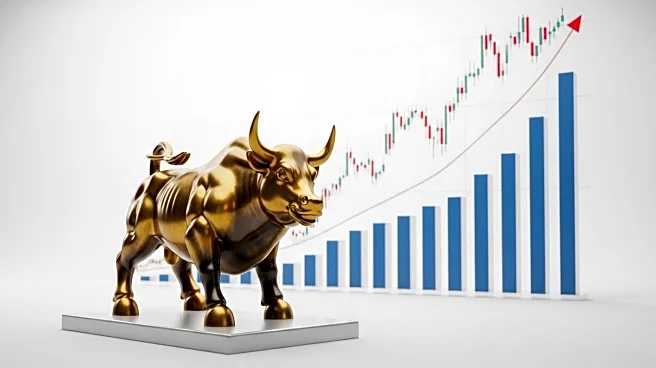What's Happening?
President Trump has achieved a historic milestone in the stock market by overseeing gains in the S&P 500 during August, a feat not accomplished by any second-term president in a post-election year since 1950. The S&P 500, along with the Dow Jones Industrial Average and Nasdaq Composite, reached record highs recently, driven by optimism surrounding potential Federal Reserve rate cuts and advancements in artificial intelligence. Trump's tariff and trade policies, which have previously caused market volatility, are now seen as less of a concern, contributing to the market's positive performance.
Why It's Important?
This development is significant as it highlights the resilience of the U.S. stock market under President Trump's administration, despite historical trends and economic uncertainties. The market's performance could influence investor confidence and economic policy decisions, particularly regarding interest rates and trade policies. The rise in stock valuations, partly fueled by AI advancements, suggests potential long-term growth but also raises concerns about market overvaluation. Stakeholders, including investors and policymakers, must navigate these dynamics carefully to avoid potential economic pitfalls.
What's Next?
Looking ahead, the Federal Reserve's upcoming meeting could result in rate cuts, further impacting market dynamics. Investors will be watching for any changes in Trump's trade policies, which could affect inflation and economic growth. The market's high valuation levels may prompt caution among investors, as historical data suggests potential downturns following such peaks. The interplay between AI-driven growth and economic policy will continue to shape market trends and investor strategies.
Beyond the Headlines
The broader implications of Trump's stock market achievement include potential shifts in economic policy and investor behavior. The focus on AI and technological innovation may drive long-term economic growth, but also necessitates careful management of market valuations and inflation risks. Trump's tariff policies, while less immediate, could still influence economic conditions, highlighting the need for strategic policy decisions to balance growth and stability.










